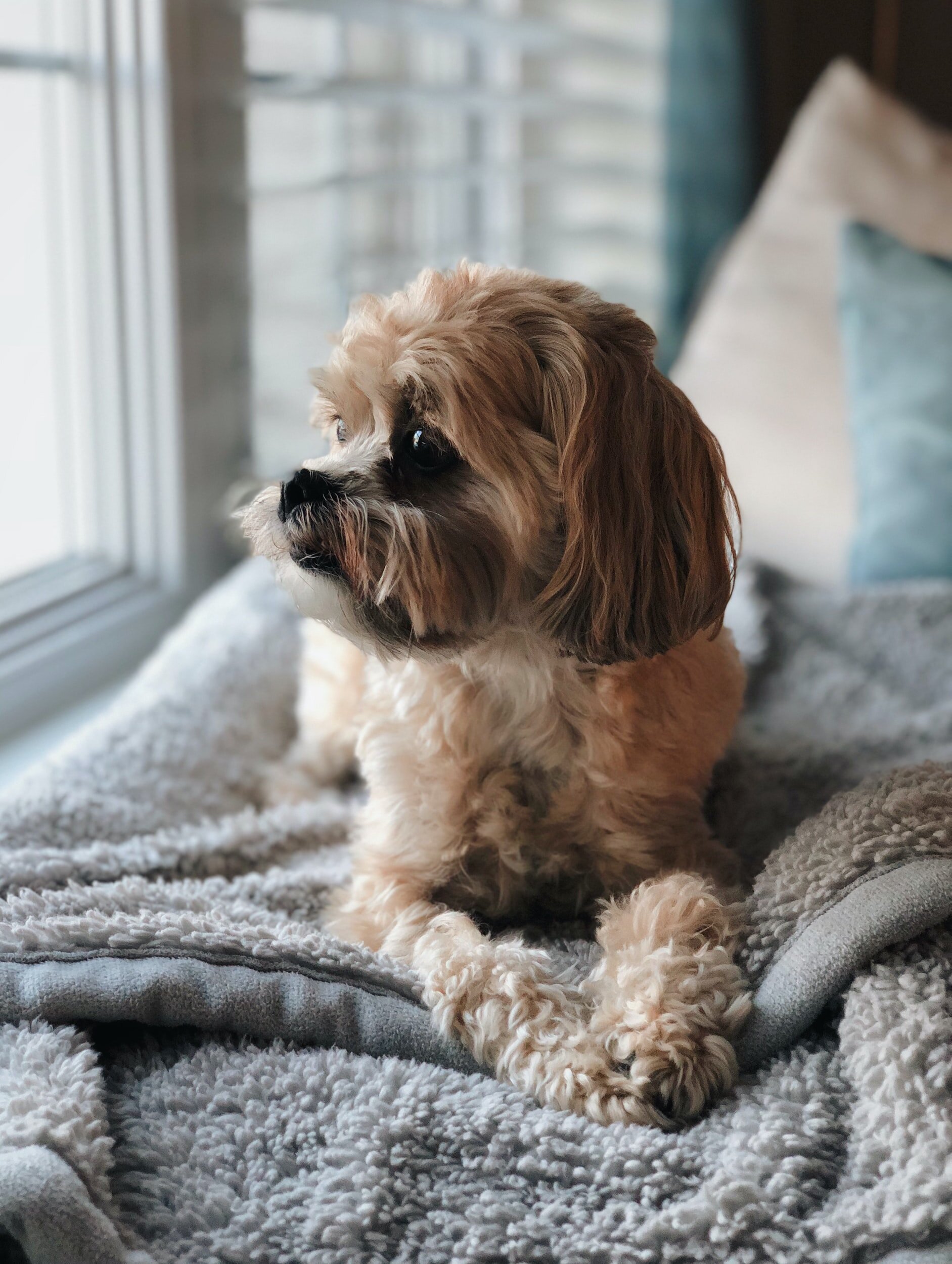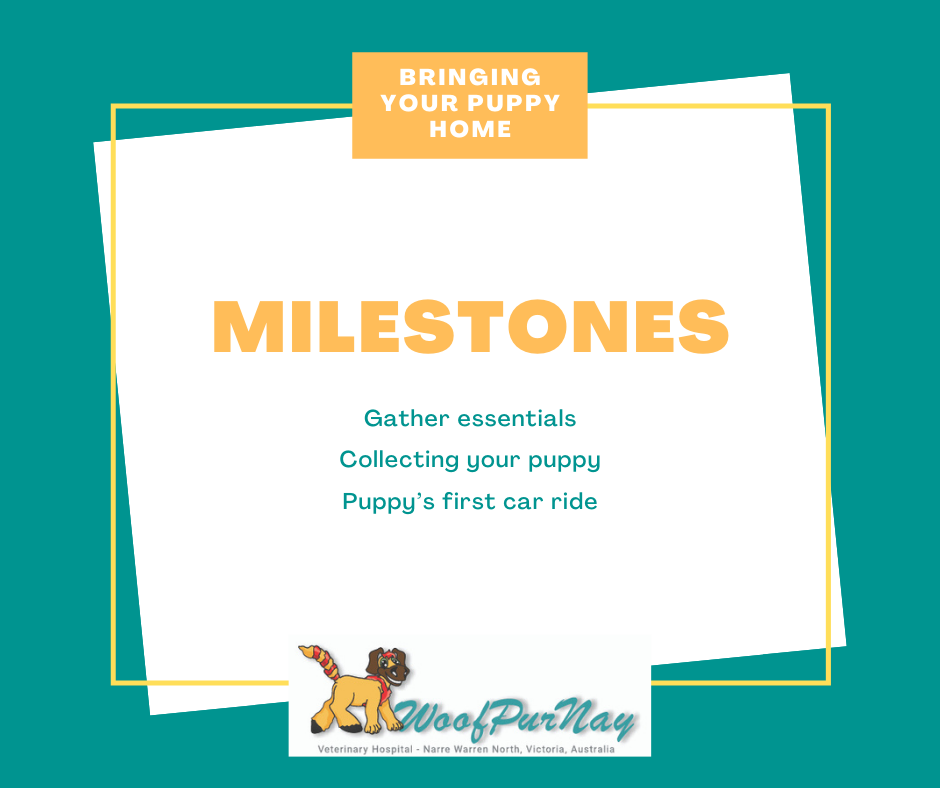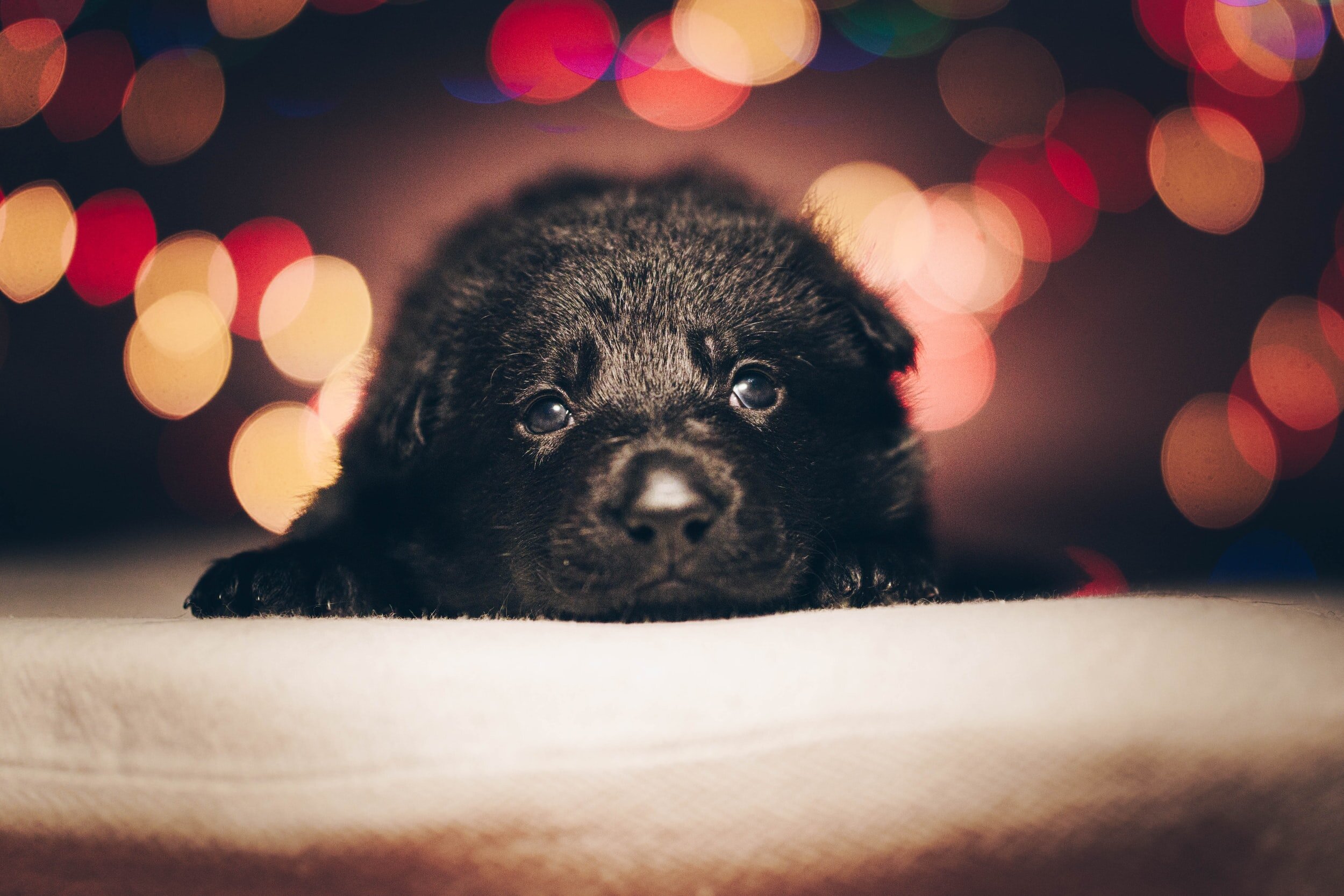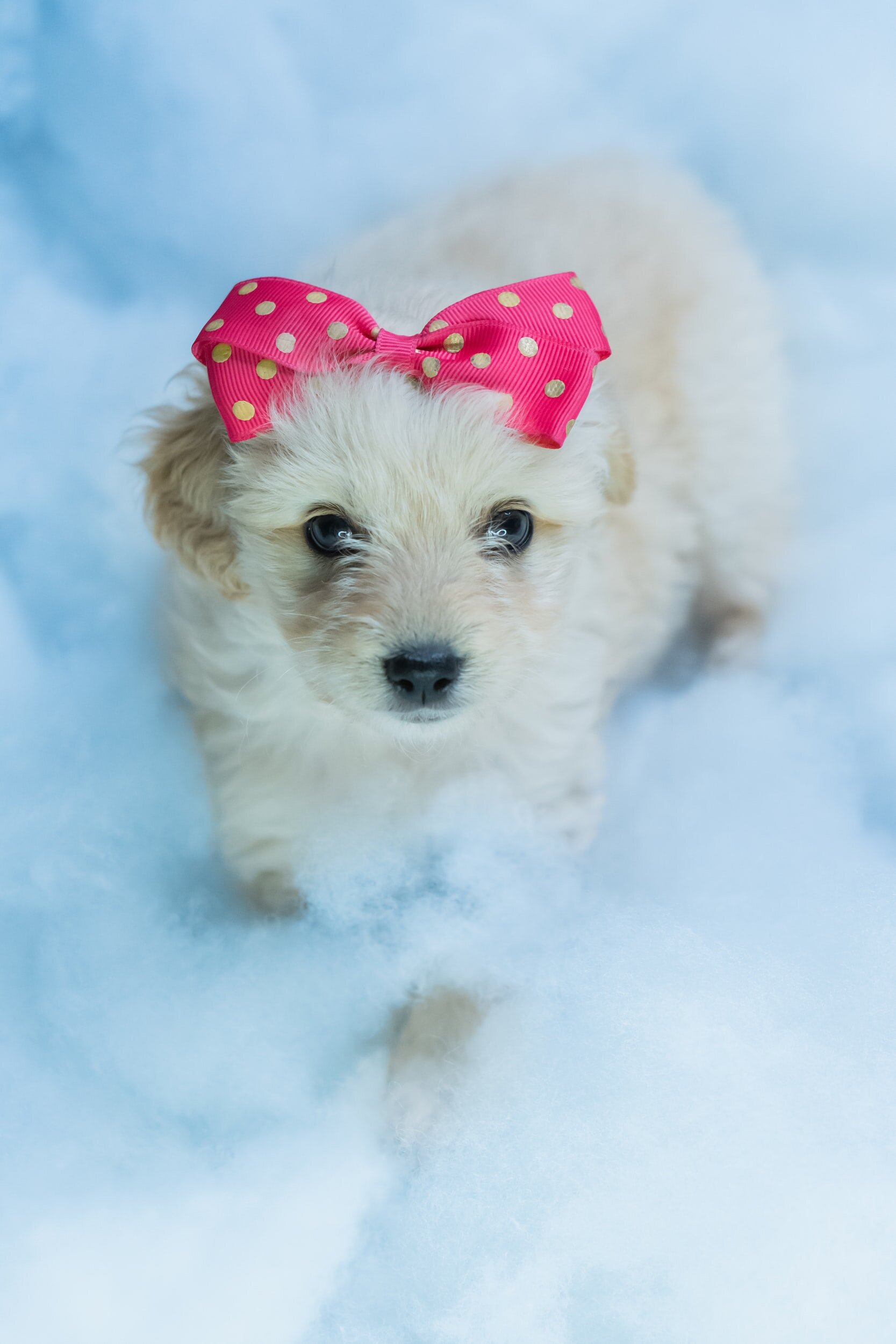Congratulations, you have entered the world of puppyhood. Get ready for lots of cuddles, fun and loving that is about to come bounding your way on four excited legs! The first 30 days with your new puppy are an important time to bond together, develop good habits, set important boundaries and commence house training. To ensure you don’t miss out on any important steps we have created a guide that will take you through this time and the important milestones along the way.
Preparing for your puppy’s arrival
Before your puppy arrives home there are a few important milestones to tick off the list. Read our article “New puppy essentials checklist” that takes you through preparing your home before your puppy arrives, a checklist of puppy essentials you will need and a list of important contacts to create.
Bringing your puppy home
The day you have been looking forward to has finally arrived! What an exciting day. Picking up your puppy will generally involve travelling from the shelter or local breeder and back home so can often include a long ride in the car. It is the perfect opportunity to start training your puppy for car travel. Your puppy will also be moving home so you want to make sure they feel safe and secure.
Gather essentials
When it’s time to pick up your puppy you will need to bring their new collar, ID tag & lead. You will also need a car harness or crate for safe car travel. To help them feel comfortable bring along a comfort toy and blanket. It’s a good idea to place these near puppy’s mum and litter mates to attract their scent. This can help puppy feel safe and secure, especially on the ride home and for sleeping at night.
If you can bring along a friend or family member (with a camera) they can help to capture this special moment and also help out on the car ride home. It’s also a good idea to bring along some rags, towels and poop bags to clean up any messes along the way.
Collecting your puppy
When you collect your puppy make sure you’ve got all the paperwork and ask about their current routine/feeding schedule. Often they can give you a sample of what they are feeding your puppy so you can continue with this food or integrate it with their new food to help them transition. Now is the time to place your comfort toy and blanket near puppy’s mum and litter mates to attract their scent.
Before placing your puppy in the car put on their collar. Make sure it is tight enough to not slip over their head. As a guide you should be able to fit two fingers between their collar and their neck. You should also take them for a little walk to tire them out and give them a chance to go to the bathroom.
Puppy’s first car ride
If possible, place your puppy in the back seat of the car next to a family member or friend. Secure them in their harness or crate. Don’t forget to provide them their blanket and comfort toy. If they bark or cry on the way home calmly reassure them.
If you are taking your puppy for a long ride you can stop along the way to allow them to go to the toilet and have a drink. However, don’t stop at a highway rest stop or park where other dogs have been to the toilet. You want to keep them healthy as they possibly haven’t been vaccinated yet.
When you arrive home, give your puppy an opportunity to go to the toilet before bringing them indoors.
The first 24 hours with your new puppy
Day one is very exciting by try not to overwhelm your puppy. Their first 24 hours is all about introductions, firsts and settling your puppy into their new home.
Introductions to new home, pets and family members
Let puppy safely explore their new home and sniff around. Show them where to find food and water and where to go to the toilet. Talk to your puppy so they get to know the sound of your voice. Start teaching them that its ok for you to touch their paws, look inside their ears, rub their belly, touch their nails and groom them with a soft brush.
Each family member needs time to get to know their new furry addition so make sure everyone gets a chance. Let everyone have short, supervised cuddles, but don’t push your puppy too far. If you puppy looks overwhelmed, make sure they have a safe and comfortable area to go for a break.
If you have existing pets, a good way to introduce them is by scent first. Place your pets in separate rooms and give your puppy a cuddle. Return the cuddle to your existing pet and repeat. You can also allow your puppy to explore the house while your existing pet is secure in their own comfortable room. Then switch pets. Once familiar with each other’s scent you can slowly introduce your puppy visually through a screen door, in a crate, on a lead or by holding your pet at a distance. Offer lots of praise and encouragement to them both.
For more detailed information on introducing a new pet into the family click here.
Toilet training begins
Until your puppy has had their vaccinations you will need to find a place outdoors that’s inaccessible to other animals to practice their toilet training. Give your puppy plenty of opportunities to go outside and reward them when they go where you want them to go. Rewards can include praise, treats, a toy or a pat. Refrain from punishing your puppy when they have an accident indoors. Common times to take your puppy out to toilet train include:
When you wake up
Just before bedtime
After your puppy eats or drinks water
When you puppy wakes from a nap
During or after physical activity
Establish house rules and verbal cues
Use your puppy’s name a lot, especially when taking them outside to go to the toilet and at feeding time. In the same way start to establish some boundaries such as which furniture and rooms are out of bounds. If they go somewhere they are not allowed, let them know the rules with a firm “no”.
Puppy’s first night sleeping
About three hours before bedtime, give your puppy their last meal for the day and plenty of water to drink. About an hour before bedtime, start winding down playtime and offer pats and cuddles instead. Take them to the toilet about 10-15 minutes before bed.
When they are relaxed, calmly put them in their sleeping area or crate, with their comfort toy and blanket. Other items that can help include filling a hot water bottle with warm (not hot) water and wrapping it in a blanket to put amongst their bedding. You can also hide a ticking clock under or near their bed to mimic mum’s heartbeat.
The first night can be hard and your puppy will possibly wake you up a few times. If puppy cries, take them out on a leash to the toilet and put them back to bed without any treats or playtime. Establish a bedtime routine from the start and stick to it. Whilst the first night can be challenging, a routine should help your puppy understand what is expected and normal when the household goes to sleep.
Some people like to have their puppy’s bed in their bedroom where your scent and sound of your breathing can help settle them. Others prefer puppy to be in their own room from the beginning. Whichever you choose, it’s important to establish a specific sleeping place to help your puppy get into the routine. Make sure their bed is a warm, inviting place where they feel safe and secure.
The first 10 days with your puppy
You have survived the first 24 hours with your puppy, well done! Over the next 10 days it’s important to focus on your puppy’s health, it’s time for their first visit to the vet. You will also need to continue working on house rules as your puppy starts to push the limits.
Keep an eye on their health
Young puppies are susceptible to disease and infection, so you'll need to keep a close eye on them. Make sure your puppy's urine and faeces appears normal since it is common for puppies to get urinary tract infections and have intestinal parasites.
Inspect them regularly and watch for signs of infection or poor health. Report anything unusual such as vomiting, diarrhoea or a puppy who won't stand or eat to your vet.
Make sure you and all family members thoroughly wash your hands before interacting with your puppy to reduce the risk of them getting sick from any bacteria that may be on your hands.
Register your puppy
It is important to register your dog with your local council and have them micro-chipped. Each council has different laws so you will need to get in touch with the council in your local area for full details.
Brush their teeth for the first time
Starting to brush your puppy’s teeth between the ages of eight and sixteen weeks is vital to the health of their teeth and starting out early will make it much easier for them to get used to this daily activity. That's right, you should be brushing your pup's teeth every day before bedtime, just like you do your own.
You will need a specially designed toothbrush and toothpaste for dogs and it’s important to take it slowly to get them use to brushing. Read our guide for brushing your puppy’s teeth.
Establish a grooming routine
Regular grooming and washing are important parts of puppy care, particularly for those with medium to long hair. Starting early, will help them adjust and establish a regular routine early on.
Washing and grooming and should always be comfortable for your puppy. Be gentle and reward your puppy for allowing you to groom them. This way they will associate grooming as a positive experience, making it easier for both of you.
Schedule first visit to the vet
One of the first things you should do when you get a new puppy is to find a local vet and book a health check. It’s important to make sure your puppy is in good health and to start their vaccination program. Our vets will not only check your puppy’s general health but will also discuss a preventative healthcare routine including vaccinations, parasite control, micro chipping and de-sexing options.
Vaccinations need to be completed in specific, timed intervals in order for them to be effective, so you need to keep these up to date. Our vets can also inform you about early signs of illness to look out for. It is also a great time to ask about any questions you might have such as nutrition, exercise and obedience.
Resist the urge to take your puppy to places other dogs may have been unless they are up to date with their vaccinations and your vet has deemed your puppy healthy.
Stay consistent with training
Stay consistent with your training and be patient. Your puppy will want to please you, but they will also make mistakes. Continue to praise your puppy when they do the right thing or deter it from doing the wrong thing by distracting it with a toy.
The first 30 days with your puppy
Congratulations, you are a wonderful puppy parent. As your puppy moves towards their first 30 days at home establish a strong health routine and discourage bad habits from developing such as biting and chewing. Also research support in areas of need such as training, pet sitting and grooming.
Continue with puppy’s health routine
Your puppy should have been to the vet at least once for their health check and vaccinations. Depending on the age of your puppy they will need multiple visits to complete their vaccinations, followed by a yearly booster.
Following your first health check, you should have also started your puppy on parasite preventative treatments to prevent and control fleas, ticks, intestinal parasites and heartworm. You should have also discussed other areas such as spaying or neutering your puppy, microchipping and pet insurance.
Biting and chewing
From the very first day your puppy should be discouraged from chewing your personal items and they need to learn that biting people and other pets is not allowed. Choose a good quality chew toy to redirect this unwanted behaviour until your puppy matures.
Arm yourself with some anti-chew spray. The bitter taste will help deter your puppy’s chewing away from your personal belongings that they have become attached to.
Puppy school and obedience
The early months of your puppy’s life are the perfect time to teach some basic obedience skills. Teaching these skills not only strengthens the bond between you and your puppy but can also help them settle in as a well-mannered, happy member of your family.
Teaching your puppy to obey commands such as sit, stay and come will not only impress your friends but will help your dog stay safe and under control in potentially hazardous situations.
Our puppy school classes are run by Michelle Cogley from Animal Escapades, an experienced and qualified dog trainer through National Dog Trainers Federation (NDTF). Michelle takes puppies from 8-16 weeks of age, with proof of vaccination required to attend classes.
It’s important to keep it positive. Positive reinforcement such as small treats, praise or a pat has proven to be vastly more effective than punishment.
Socialisation
Just like obedience training, proactive socialisation is important for your puppy. Between approximately 3-17 weeks of age puppies go through a critical socialisation period. The experiences that your puppy has during this time can influence and shape their behaviour well into the future.
Socialising your puppy must be done in a safe and positive environment, such as puppy preschool. You can also take your puppy to meet with other puppies and dogs of your family or friends. It is important to make sure that the other dogs and puppies are friendly, healthy and up to date with their vaccinations.
Ask for help when you need it
Speak to your family, friends or neighbours about getting a little help when you are at work or need a break from your puppy. If those options aren’t available there are boarding kennels that offer day or extended boarding services as well as mobile pet sitting services that you can easily research on-line.
Regular brushing and grooming at home helps to keep your pet’s coat in great condition. If your puppy has medium to long hair you may need the help of a professional groomer for clipping, grooming and washing services. Woofpurnay offer a professional grooming service. Appointments can be made by calling reception on 03 8784 4444.
We strongly recommend that you insure your puppy. Pet insurance is becoming more popular in Australia as it offers peace of mind and covers some or all of the treatment costs if your dog was involved in an accident or suffers a sudden illness. There are several companies that offer pet insurance and we can help you find the one that best suits the needs of you and your pet.
The first 30 days are an exciting and rewarding time to spend with your new puppy. We are here to help you navigate through this important time so call us on 03 8784 4444 with any questions. We can’t wait to meet your new furry family member.























